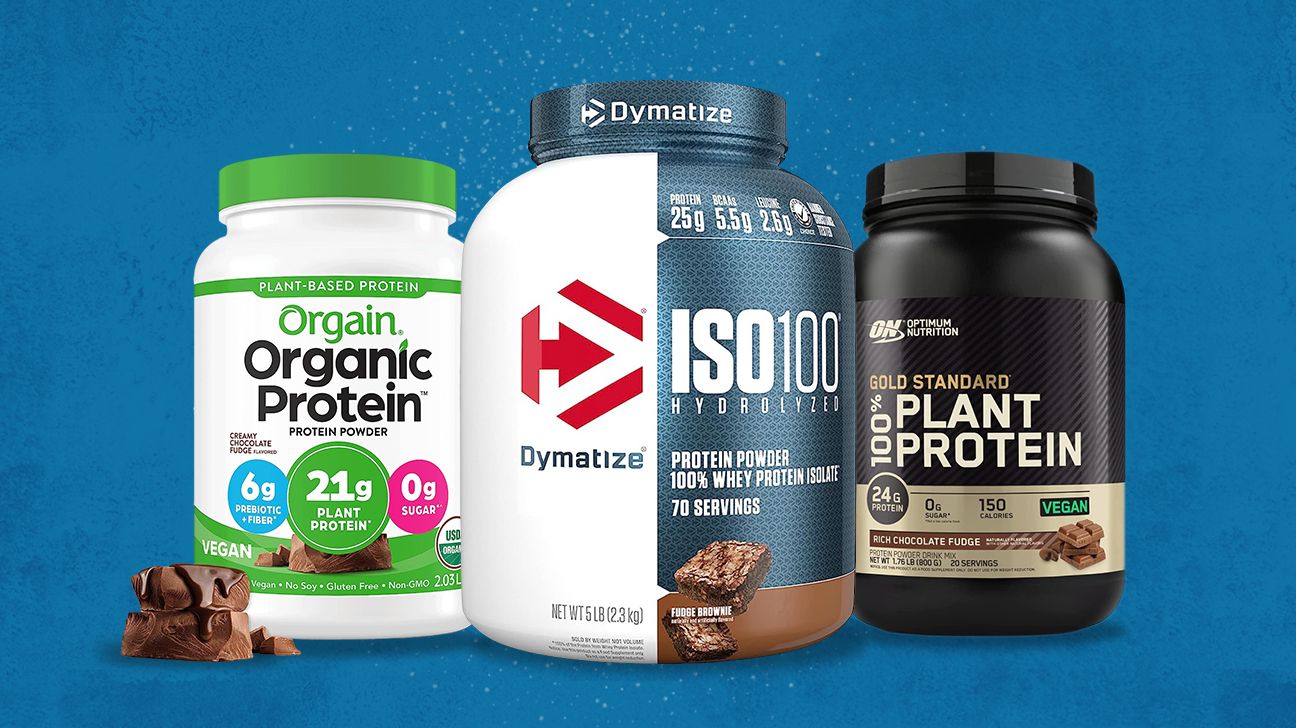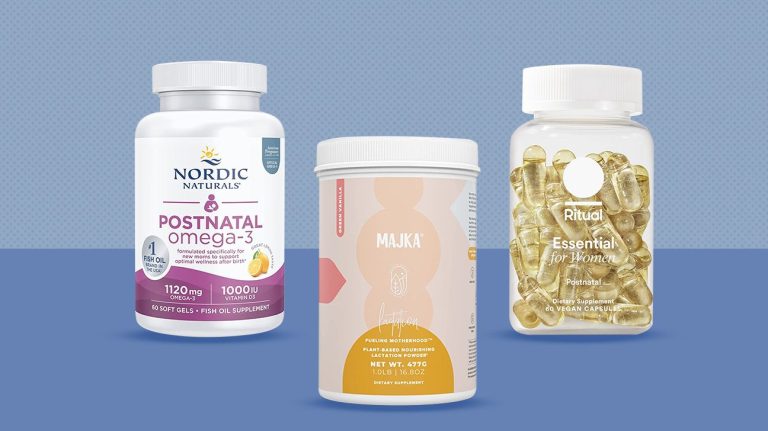9 Best Protein Powders for Muscle Gain, Weight Loss, and Taste in 2024
Looking to boost your fitness game with the best protein powder? Whether you’re aiming to build muscle, lose weight, or simply enhance your overall nutrition, choosing the right protein powder can make all the difference. With countless options on the market, finding the perfect fit might feel overwhelming.
Don’t worry—we’ve done the heavy lifting for you. In this article, you’ll discover the 9 best protein powders that cater to various dietary needs and fitness goals. From whey to plant-based options, these top picks will help you fuel your body effectively and achieve your health objectives.
Criteria for Choosing Protein Powders
Choosing the right protein powder can significantly impact your fitness journey. Here’s what you should consider:
Protein Sources
Check the protein source. Look for whey, casein, soy, pea, or hemp. Whey offers quick absorption, ideal post-workout. Casein is slower, better for nighttime. Soy suits vegetarians and supports heart health. Pea protein is great for vegans with a decent amino acid profile. Hemp provides omega-3s along with protein.
Quality Assurance and Certifications
Verify quality assurance. Choose brands certified by third-party organizations like NSF or Informed-Sport. These certifications ensure the product is free from banned substances and contaminants. Look for organic labels to avoid harmful pesticides. Check for non-GMO certifications to ensure you’re getting a clean product.
1. Best Overall Protein Powder
Selecting the best overall protein powder requires balancing quality, taste, and nutritional value. Here’s a deeper look into its elements:
Key Features
- High-Quality Protein Source: Implements whey protein isolate, renowned for its high bioavailability.
- Low Carb and Fat: Maintains a macronutrient profile that supports lean muscle gain without excess calories.
- No Artificial Additives: Ensures purity with no artificial flavors or sweeteners.
- Comprehensive Amino Acid Profile: Contains all essential amino acids for optimal recovery and muscle synthesis.
- Third-Party Tested: Certified by reputable organizations to ensure product safety and efficacy.
- Easily Mixable: Dissolves quickly in various liquids, making it convenient for shakes and recipes.
Pros and Cons
-
Pros:
- Efficient Muscle Recovery: High protein content aids in quick muscle repair and growth.
- Great Taste: Offers a range of flavors that are generally well-received.
- Immediate Absorption: Whey isolate is absorbed quickly, which is ideal post-workout.
- Allergen-Free: Suitable for individuals sensitive to common allergens.
- Variety of Sizes: Available in multiple sizes to fit your consumption needs.
- Pricey: Higher quality often comes with a higher price tag.
- Limited for Vegans: Not suitable for those adhering to a strict vegan diet.
- Availability: Popular products might frequently go out of stock.
This balance of features and benefits, with only a few drawbacks, solidifies this option as the best overall protein powder on the market.
2. Best Whey Protein Powder
Whey protein powder is a popular choice among fitness enthusiasts due to its complete amino acid profile and fast absorption rate. Here, we’ll explore the best option available based on key features and pros and cons.
Key Features
High-Quality Protein Source: This whey protein uses 100% whey protein isolate, ensuring a high biological value and excellent protein digestibility.
Low Fat and Carbs: With less than 2 grams of fat and carbohydrates per serving, it’s perfect for those following low-carb or ketogenic diets.
No Artificial Additives: Free from artificial flavors, colors, and sweeteners, making it a healthier choice.
Comprehensive Amino Acid Profile: Contains all essential amino acids, including a rich supply of branched-chain amino acids (BCAAs) for effective muscle repair and growth.
Third-Party Tested: Certified by trusted organizations to ensure product purity, safety, and label accuracy.
Pros and Cons
Efficient Muscle Recovery: Its fast absorption rate helps in quicker muscle recovery post-workout.
Great Taste: Available in a variety of flavors, ensuring you never get bored of your protein shakes.
Allergen-Free: Free from gluten, soy, and dairy to cater to individuals with specific dietary restrictions.
Variety of Sizes: Available in small, medium, and large containers, catering to different usage needs.
Higher Price Point: The premium quality comes at a slightly higher cost compared to other whey protein powders.
Not Vegan-Suitable: This product isn’t suitable for those following a vegan or lactose-free diet.
3. Best Plant-Based Protein Powder
Plant-based protein powders are ideal for vegans and those who want to avoid dairy. These powders offer clean, green nutrition without compromising on quality or taste.
Key Features
- Source Variety: Often made from diverse sources like peas, hemp, and brown rice.
- Nutrient Dense: Rich in essential nutrients, amino acids, and fibers.
- Digestibility: Easy on your digestive system, promoting a healthy gut.
- Allergen-Free: Suitable for those with soy, dairy, and gluten allergies.
- Environmental Impact: Produced with sustainability in mind; eco-friendly.
Pros and Cons
- Vegan-Friendly: Ideal for plant-based diets.
- Low Allergen Risk: Generally free from common allergens.
- Gut Health: Promotes better digestion and reduces bloating.
- Sustainable: Environmentally friendly production processes.
- Versatile: Can be mixed into shakes, smoothies, and recipes seamlessly.
- Flavor: Sometimes less palatable compared to whey or casein.
- Texture: Might have a grittier texture.
- Price: Often more expensive due to quality plant-based ingredients.
- Protein Content: Typically contains slightly less protein per serving.
- Availability: Might be less readily available in stores.
4. Best Protein Powder for Weight Loss
When it comes to weight loss, you need more than just a protein boost. The best protein powders for weight loss support muscle maintenance while curbing appetite and enhancing metabolism.
Key Features
High protein content: Look for protein powders with at least 20 grams per serving, which helps support muscle mass and satiety.
Low calories: Opt for options that have fewer than 150 calories per serving to avoid excess calorie intake.
Minimal carbs and fats: A quality protein powder should have low carbohydrate and fat content, ideally under 5 grams each per serving.
Added nutrients: Look for powders with added vitamins, minerals, or other beneficial ingredients like fiber and probiotics, which aid in overall health and digestive support.
Natural sweeteners: Choose powders with natural sweeteners like stevia or monk fruit rather than artificial sweeteners to avoid unnecessary chemicals.
Pros and Cons
Pros
Support appetite control: Protein powders that include fiber can help you feel full longer, reducing the temptation to snack.
Boost metabolism: Protein requires more energy to digest than fats or carbs, temporarily boosting your metabolism after consumption.
Retain muscle mass: Protein intake supports the maintenance of lean muscle mass, especially important when you’re on a calorie deficit.
Convenient: Easy to mix into shakes or incorporate into meals for on-the-go nutrition without extra calories.
Cons
Taste and texture: Some weight loss protein powders can have a chalky or gritty texture, which may be off-putting.
Higher cost: Quality weight loss protein powders often come at a higher price due to added beneficial ingredients.
Limited flavors: Options in this category may have fewer flavor choices compared to general protein powders.
Potential digestive issues: Some protein powders might cause bloating or gas, especially if you aren’t used to high protein diets or specific ingredients.
5. Best Budget-Friendly Protein Powder
Key Features
Affordability meets quality in budget-friendly protein powders. These options provide a good protein content per serving without breaking the bank. Typically, budget-friendly powders come with essential amino acids, making them a solid choice for muscle building and recovery. Many also include added vitamins and minerals, ensuring you get a well-rounded supplement. Look for products with minimal additives or artificial ingredients to keep it healthy.
Pros and Cons
- Cost-effective: You won’t have to spend a lot to meet your protein requirements.
- Sufficient Protein Content: They provide enough protein per serving to support muscle growth and recovery.
- Accessible: Widely available in most stores and online.
- Flavor Options: Limited flavor choices compared to premium brands.
- Mixability: May not blend as well, leading to a grainy texture.
- Additional Ingredients: Some budget options may include fillers or artificial ingredients that you might want to avoid.
6. Best Protein Powder for Muscle Gain
Finding the best protein powder for muscle gain can make all the difference in your fitness journey. Consider these key features and weigh the pros and cons to find the perfect match for your goals.
Key Features
- High Protein Content: Look for powders with at least 20-30 grams of protein per serving. This ensures you’re getting enough amino acids for optimum muscle repair and growth.
- Fast Digesting Proteins: Choose whey protein isolate or whey hydrolysate, as they’re quickly absorbed post-workout, speeding up recovery.
- Branched-Chain Amino Acids (BCAAs): Check for BCAAs like leucine, isoleucine, and valine. These help reduce muscle soreness and enhance muscle protein synthesis.
- Additional Nutrients: Opt for powders enriched with vitamins, minerals, and creatine. These extras can provide a performance boost and support overall health.
- Low Sugar and Fat: Select options with minimal added sugars and fats to focus on lean muscle gain.
Pros and Cons
Pros:
- Muscle Recovery: Fast-digesting proteins and BCAAs speed up recovery, reducing muscle soreness.
- Muscle Growth: High protein content supports significant muscle hypertrophy.
- Convenience: Easy to mix and consume, ideal for quick nutrition after workouts.
- Nutrient Boost: Added vitamins and creatine enhance overall performance and health.
- Cost: Quality protein powders with high protein content and additional nutrients may be pricier.
- Taste and Texture: Some powders can have a chalky taste or gritty texture, which might be unappealing.
- Allergens: Whey-based powders can cause issues for those with lactose intolerance or dairy allergies.
- Digestive Issues: Fast-digesting proteins might lead to bloating or digestive discomfort for some users.
Choose the best protein powder for muscle gain by prioritizing protein content, digestibility, and additional nutrients while considering taste, cost, and potential allergens.
7. Best Low-Carb Protein Powder
Selecting the best low-carb protein powder can be challenging, especially if you’re watching your carbohydrate intake for weight loss or managing your blood sugar levels. Here’s what you should look for.
Key Features
Low Carbs: Ensure the protein powder has minimal carbohydrates, ideally under 3 grams per serving.
High Protein: Opt for a powder with at least 20 grams of protein per serving.
Quality Ingredients: Choose products with clean, high-quality ingredients without added sugars or artificial fillers.
Digestibility: Look for protein powders that are easy on the stomach, like whey isolate or hydrolyzed protein.
Good Taste: Select a powder that mixes well and tastes good to ensure you’ll consistently use it.
Pros and Cons
- Helps Maintain Low Carb Diet: Keeps your carb intake low for better weight management.
- Supports Muscle Mass: Provides sufficient protein for muscle maintenance and growth.
- Manages Blood Sugar: Helps maintain stable blood sugar levels.
- Versatility: Can be used in various recipes, from shakes to baked goods.
- Taste Varieties: Limited flavor options compared to regular protein powders.
- Price: Often pricier due to higher manufacturing standards.
- Texture: Some low-carb powders might have a grittier texture.
- Limited Availability: Fewer options available compared to high-carb protein powders.
8. Best Protein Powder for Vegans
Choosing the perfect protein powder as a vegan can often be a challenge given the variety of plant-based options available. Here are the key features and a brief overview of the pros and cons to guide your decision.
Key Features
- Plant-Based Ingredients: Vegan protein powders are typically made from sources like pea, hemp, brown rice, and soy. Ensure the product is free from animal-derived ingredients.
- Complete Protein Profile: Opt for powders that offer all nine essential amino acids. A blend of different plant proteins (e.g., pea and rice) can achieve this.
- Digestibility: Choose powders that are easy on the stomach. Look for products fortified with digestive enzymes to enhance absorption.
- Quality and Purity: Ensure the powder is non-GMO, organic, and free from artificial additives. Check for third-party testing to guarantee quality.
- Flavor and Texture: Many vegan powders can be gritty or have a strong taste. Select a product known for good flavor and smooth texture.
Pros and Cons
Pros:
- Nutrient Density: Vegan protein powders often come with added vitamins, minerals, and fiber from their plant ingredients.
- Allergen-Friendly: These options are generally free of common allergens like dairy, making them suitable for people with intolerances.
- Eco-Friendly: Plant-based protein production has a lower environmental impact compared to animal-based proteins.
Cons:
- Protein Content: Plant-based powders might offer less protein per serving compared to whey protein.
- Texture: Some vegan powders can have a grittier texture. Mixing them well can improve the consistency.
- Cost: High-quality vegan protein powders can be more expensive due to the sourcing of organic and non-GMO ingredients.
Use this guide to identify the vegan protein powder that best fits your dietary needs and preferences.
9. Best Tasting Protein Powder
Finding a protein powder that delivers on both nutrition and taste can be a game-changer. Here are the crucial aspects to consider.
Key Features
Flavor Varieties: Enjoy a wide range of flavors like chocolate, vanilla, and strawberry, ensuring you never get bored.
Smooth Texture: Look for a powder that blends easily with water or milk, offering a creamy and smooth texture without clumps.
Sweeteners: Check for natural sweeteners like stevia or monk fruit to keep your shake tasty yet healthy.
Mixability: Prioritize protein powders that dissolve well in various liquids, making them versatile for shakes, smoothies, and baking.
Pros and Cons
Pros:
- Enhanced Enjoyment: A good-tasting protein powder makes it easier to stick to your dietary routine.
- Versatility: Can be used in a variety of recipes, from shakes to baked goods.
- Natural Sweeteners: Offers a healthier option without the need for artificial sweeteners.
Cons:
- Added Sugars: Some tasty protein powders may contain higher levels of sugar, affecting their healthfulness.
- Flavor Fatigue: Despite a variety of flavors, you might get tired of the same taste after a while.
- Higher Price: Quality ingredients and better flavor profiles can come at a premium cost.
Choosing the best-tasting protein powder ensures you stay motivated and enjoy your fitness journey.
How to Use Protein Powders Effectively
Maximizing the benefits of protein powders requires proper usage. Here are essential tips to incorporate them effectively into your regimen.
Incorporating into Diet
Add protein powder to smoothies for a nutrient-packed snack. Blend with fruits, vegetables, and a liquid base like water or almond milk. Use protein powder in baking to boost the protein content of muffins, pancakes, and cookies. Integrate into oatmeal or yogurt for a quick breakfast or snack option. Mix with water or milk for a straightforward protein shake that’s perfect post-workout. Be consistent with your consumption to meet daily protein needs.
Timing for Optimal Benefits
Consume protein powder within 30 minutes post-workout to aid muscle recovery. Use it as a pre-workout boost if you need extra energy. Take protein powder as a meal replacement when you’re short on time. Distribute your intake throughout the day to keep protein levels steady. Include it in your breakfast to start the day with a protein kick. Listen to your body and adjust timing based on your personal energy levels and fitness goals.
Conclusion
Selecting the right protein powder can significantly impact your fitness journey. Whether you’re aiming for muscle recovery, weight loss, or just a nutritious addition to your diet, there’s a protein powder out there to meet your needs. Consider your dietary preferences, taste, and fitness goals when making your choice.
Remember to experiment with different ways to incorporate protein powder into your meals, from smoothies to baking. Adjust your intake based on your personal energy levels and fitness objectives. With the right protein powder, you’ll be well on your way to achieving your health and fitness goals.






